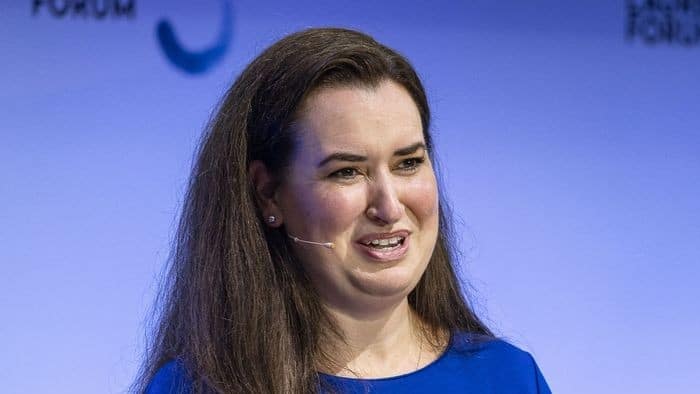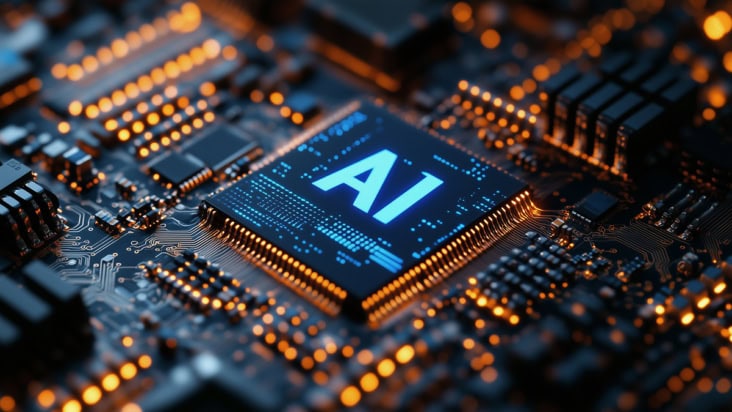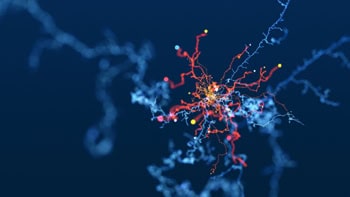

Yet the work shows that using AI can lead to a shrinking of research focus

MaterialsGalaxy platform will reduce unhelpful “silos” within the field, say scientists
Discovery could improve the performance of hovering robots and even artificial pollinators
The CytoDiffusion classifier analyses the shape and structure of blood cells to detect abnormalities that may indicate blood disorders
New formulation sheds light on the three-level maser
New calculation of viral spread suggests that rapid elimination of SARS-CoV-2-like viruses is scientifically feasible, though social challenges remain
Result boosts our understanding of the Navier-Stokes equation
New form of quantum advantage emerges from study of game theory and quantum information
Can you make an impact through peer review?
Join more than 15,000 researchers who have achieved IOP Trusted Reviewer status – Tell me more

The arXiv paper is "not intended as a recipe for unethical daycare centre"
 Read article: The physics of an unethical daycare model that uses illness to maximize profits
Read article: The physics of an unethical daycare model that uses illness to maximize profits
Research suggests that the standard game, and other permutations, can be unfair to players who go second
 Read article: Chess960 still results in white having an advantage, finds study
Read article: Chess960 still results in white having an advantage, finds study
CGI pioneer Pat Hanrahan is our podcast guest
 Read article: Oscar-winning computer scientist on the physics of computer animation
Read article: Oscar-winning computer scientist on the physics of computer animation
Discover the role of impedance analysis in advancing battery-model development
 Read article: Physics-based battery model parameterization from impedance data
Read article: Physics-based battery model parameterization from impedance data
Test your knowledge of the deep connections between physics, big data and AI
 Read article: How well do you know AI? Try our interactive quiz to find out
Read article: How well do you know AI? Try our interactive quiz to find out
The editors-in-chief of IOP Publishing’s machine learning series share their views
 Read article: Physicists discuss the future of machine learning and artificial intelligence
Read article: Physicists discuss the future of machine learning and artificial intelligence
Iulia Georgescu highlights the forgotten pioneers of computational physics and calls for a wider appreciation of research software engineers
 Read article: The forgotten pioneers of computational physics
Read article: The forgotten pioneers of computational physics
We explore how new computing technologies could guide future LHC experiments
 Read article: Quantum computing and AI join forces for particle physics
Read article: Quantum computing and AI join forces for particle physics
New algorithm turns structured motion into sharper images
 Read article: Motion blur brings a counterintuitive advantage for high-resolution imaging
Read article: Motion blur brings a counterintuitive advantage for high-resolution imaging
Predictive model accelerates the development of nanoparticles as potential drug carriers for targeting neurodegenerative diseases
 Read article: Machine learning optimizes nanoparticle design for drug delivery to the brain
Read article: Machine learning optimizes nanoparticle design for drug delivery to the brain
New work could help improve quantum machine learning and quantum error correction
 Read article: Bayes’ rule goes quantum
Read article: Bayes’ rule goes quantum
How do we create a digital version of the vellum and clay tablets that successfully preserved information in earlier ages of human history?
 Read article: ‘Father of the Internet’ Vint Cerf expresses concern about the longevity of digital information
Read article: ‘Father of the Internet’ Vint Cerf expresses concern about the longevity of digital information
Global survey of reviewers reveals a growing polarization about the use of AI
 Read article: Peer review in the age of artificial intelligence
Read article: Peer review in the age of artificial intelligence
David Silver of Google DeepMind thinks AIs that ‘learn by experience’ are the future of AI – but maybe not in particle colliders or nuclear arsenals
 Read article: The pros and cons of reinforcement learning in physical science
Read article: The pros and cons of reinforcement learning in physical science
Some highly intelligent human mathematicians certainly seem to think so, as Margaret Harris reports from the maths-and-computer-science-focused Heidelberg Laureate...
 Read article: Are we heading for a future of superintelligent AI mathematicians?
Read article: Are we heading for a future of superintelligent AI mathematicians?
Calculations reveal inverse square law behaviour in binary black holes
 Read article: Reformulation of general relativity brings it closer to Newtonian physics
Read article: Reformulation of general relativity brings it closer to Newtonian physics
This podcast explains what happens when 66,000 research papers are used as training data
 Read article: Artificial intelligence predicts future directions in quantum science
Read article: Artificial intelligence predicts future directions in quantum science
Curiosity, problem-solving and resilience are the key qualities for a career in intelligence
 Read article: From ‘rewarding and exciting’ to ‘challenging and overwhelming’: what it means to have a career in intelligence and cyber security
Read article: From ‘rewarding and exciting’ to ‘challenging and overwhelming’: what it means to have a career in intelligence and cyber security